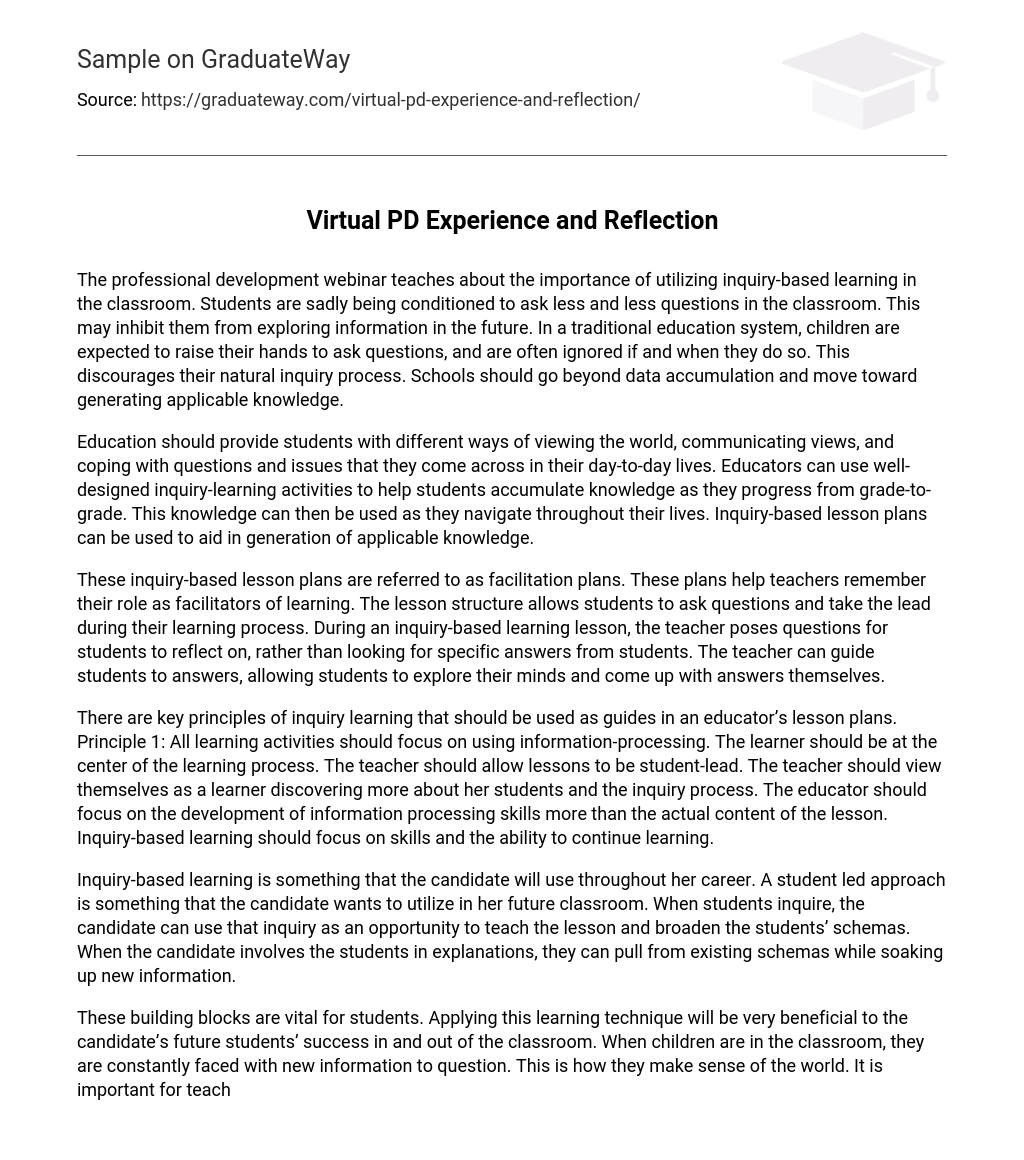The professional development webinar teaches about the importance of utilizing inquiry-based learning in the classroom. Students are sadly being conditioned to ask less and less questions in the classroom. This may inhibit them from exploring information in the future. In a traditional education system, children are expected to raise their hands to ask questions, and are often ignored if and when they do so. This discourages their natural inquiry process. Schools should go beyond data accumulation and move toward generating applicable knowledge.
Education should provide students with different ways of viewing the world, communicating views, and coping with questions and issues that they come across in their day-to-day lives. Educators can use well-designed inquiry-learning activities to help students accumulate knowledge as they progress from grade-to-grade. This knowledge can then be used as they navigate throughout their lives. Inquiry-based lesson plans can be used to aid in generation of applicable knowledge.
These inquiry-based lesson plans are referred to as facilitation plans. These plans help teachers remember their role as facilitators of learning. The lesson structure allows students to ask questions and take the lead during their learning process. During an inquiry-based learning lesson, the teacher poses questions for students to reflect on, rather than looking for specific answers from students. The teacher can guide students to answers, allowing students to explore their minds and come up with answers themselves.
There are key principles of inquiry learning that should be used as guides in an educator’s lesson plans. Principle 1: All learning activities should focus on using information-processing. The learner should be at the center of the learning process. The teacher should allow lessons to be student-lead. The teacher should view themselves as a learner discovering more about her students and the inquiry process. The educator should focus on the development of information processing skills more than the actual content of the lesson. Inquiry-based learning should focus on skills and the ability to continue learning.
Inquiry-based learning is something that the candidate will use throughout her career. A student led approach is something that the candidate wants to utilize in her future classroom. When students inquire, the candidate can use that inquiry as an opportunity to teach the lesson and broaden the students’ schemas. When the candidate involves the students in explanations, they can pull from existing schemas while soaking up new information.
These building blocks are vital for students. Applying this learning technique will be very beneficial to the candidate’s future students’ success in and out of the classroom. When children are in the classroom, they are constantly faced with new information to question. This is how they make sense of the world. It is important for teachers to take the time to allow students to ask questions and explore answers. The candidate will build an environment for active student learning. It is important as an educator to nourish inquiring minds! The candidate will encourage students to continue seeking knowledge for the rest of their lives.





